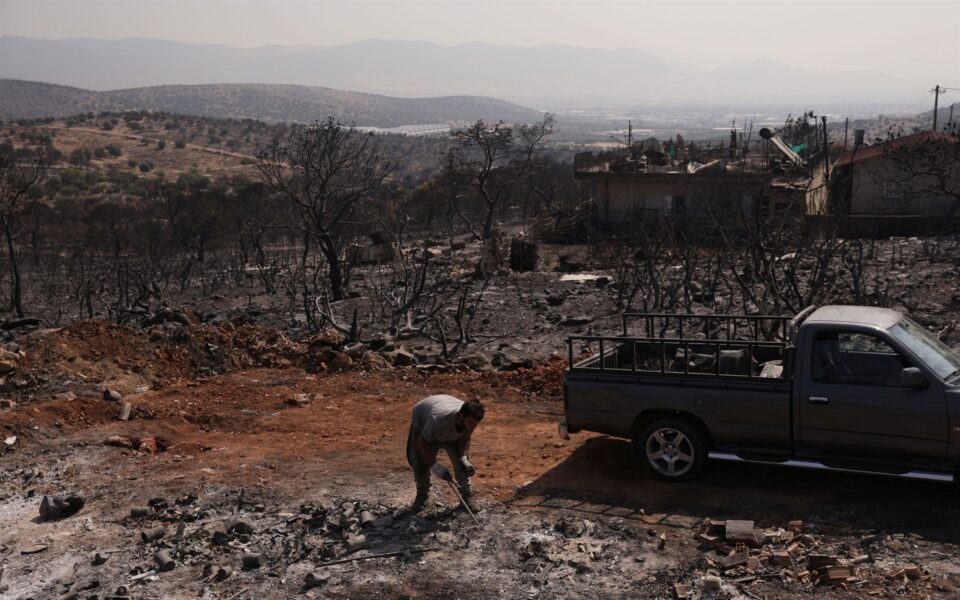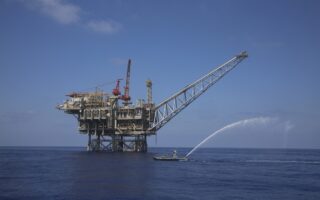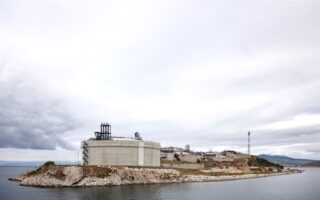Aegean deposits belong in the ground

It’s kind of mind-boggling to read articles crowing about the possibility of major hydrocarbon deposits southeast of Crete as wildfires continue to rage and the country enters its second consecutive week of scorching heat. The irony is almost unbearable.
Wildfires today burn almost double the expanses they did 20 years ago – and we all know why. It is not because there are more arsonists at work or fewer firefighters than before. It is because we have more intense heatwaves, much longer periods of drought and higher average temperatures. This is the case across the planet, which is also why even Greenland is experiencing wildfires. Climate change is not responsible for wildfires – these have always been around – but it is responsible for their increased frequency and intensity. We all know this. It is a well-documented and widely accepted fact.
There’s something else we know too: that 100 fossil fuel companies are responsible for 70% of greenhouse gas emissions since 1988. The eight biggest (Saudi Aramco, Chevron, ExxonMobil, BP, Gazprom, Royal Dutch Shell, National Iranian Oil Co, Petroleos Mexicanos) are also responsible for producing 20% of all emissions since the start of the Industrial Revolution.
Of course climate change is also driven by other factors like concrete production and livestock farming, but it is mainly due to the fact that we burn fossil fuels to produce energy, make plastics and do all sorts of other necessary things. Human civilization was built on fossil fuels and it is, without a doubt, completely hooked on them. In the past 40 years or so, however, humankind has also started to realize that it is a habit which has a global impact and that it is already becoming a huge problem.
Here’s some more numbers worth remembering: 60% of the world’s confirmed natural gas and oil deposits need to stay in the ground; 90% of confirmed coal deposits also need to stay where they are. If we stop prospecting for new deposits tomorrow and exploit the ones we already know about, extracting them and burning them, we will be sending so much toxic gas into the air that humankind will no longer be able to survive on Earth. The environment will change so fast that we will be unable to adapt.
As we speak – with weather so hot that you think twice about stepping outside for a trip to the corner kiosk because every breath feels like a lungful of fire – we are experiencing global conditions that have not been seen on Earth in 15 million years.
If we don’t decelerate this change quickly and dramatically, our surviving children and grandchildren will be fighting to immigrate to Siberia
If we don’t decelerate this change quickly and dramatically, our surviving children and grandchildren will be fighting to immigrate to Siberia.
Ending our dependence on fossil fuels now or even in the near future is, of course, entirely out of the question; societies would collapse without them. But that should not stop us from gradually replacing them with renewable energy sources and dedicating all the resources, providing the incentives and investing the political capital that is needed to make this happen.
In this respect, we are doing poorly on a global scale. States and organizations are setting theoretical, unattainable goals for years ending in 0 or 5, even though at the same time, 6.5% of global gross domestic product is going towards subsidizing oil and natural gas.
Given this chaotic situation, prospecting for new fossil fuels to burn – on top of the 60% that needs to be left alone if we want to continue to exist – and off the coast of the popular Cretan seaside village of Palaiochora no less, defies reason.
It is worth noting, of course, that most of the oil industries that conducted surveys in the Greek seas for oil and natural gas have already bowed out. Spain’s Repsol is gone, and not just from Greece; it has stopped carrying out surveys in 14 countries. Hellenic Petroleum abandoned two of the areas it had shown an interest in. This should come as no surprise given that drilling for fossil fuels, especially in the deep sea, is no easy matter. It requires massive investments that need at least a decade to start producing and many decades to start generating profits.
Given that humankind will inevitably start reducing its reliance on fossil fuels over the coming decades (if it wants to continue to exist, that is), such investments, thankfully, make less and less sense.





